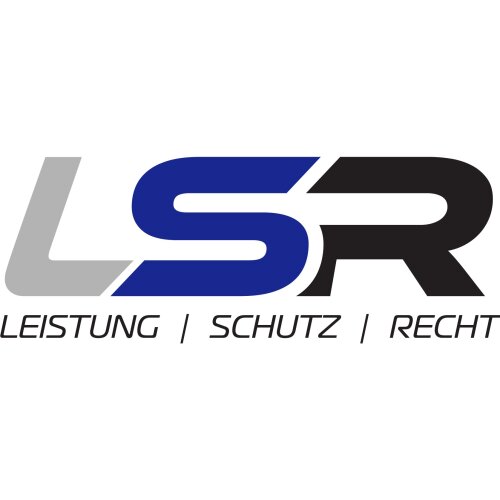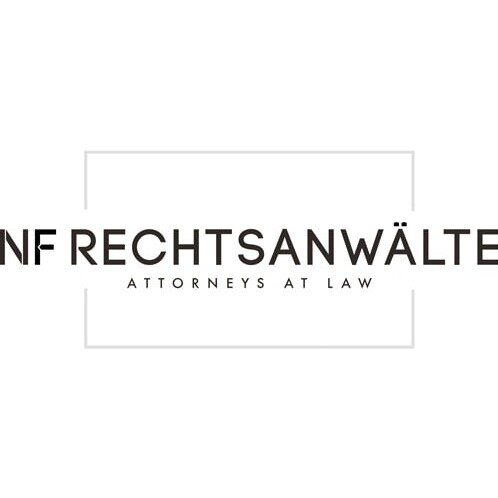Best Renewable & Alternative Energy Lawyers in Graz
Share your needs with us, get contacted by law firms.
Free. Takes 2 min.
List of the best lawyers in Graz, Austria
About Renewable & Alternative Energy Law in Graz, Austria
Graz, the second-largest city in Austria, is a front-runner in the country’s transition toward sustainable energy. With Austria’s strong commitment to achieve net-zero emissions and the city’s ambitious climate goals, renewable and alternative energy sources such as solar, wind, hydro, and biomass are increasingly important. Laws and regulations governing these technologies are designed to foster innovation, ensure safety, and balance ecological concerns with economic opportunities. Legal frameworks address issues from permitting and grid access to subsidies, incentives, and environmental protection. As renewable energy projects become more common in Graz, understanding the legal context is essential for businesses, property owners, developers, and residents.
Why You May Need a Lawyer
Legal challenges often arise when engaging in renewable and alternative energy projects. Here are some common situations where professional legal advice is vital:
- Obtaining permits and approvals for installing solar panels, wind turbines, or biomass systems.
- Negotiating purchase or lease agreements for land used in renewable energy projects.
- Understanding government subsidy and incentive programs, including eligibility requirements and application processes.
- Addressing disputes about energy supply contracts, feed-in tariffs, or grid access with utility companies.
- Ensuring compliance with environmental and zoning laws that affect project development.
- Resolving issues related to noise, visual, or environmental impacts raised by neighbors or communities.
- Facilitating partnerships, joint ventures, or investor agreements in renewable energy enterprises.
- Handling intellectual property issues related to new green technologies.
Due to the complex legal landscape and the consequences of non-compliance, involving a lawyer can save time, avoid costly mistakes, and ensure projects proceed smoothly.
Local Laws Overview
Austrian and local Graz laws provide clear guidance and regulations for anyone interested in renewable or alternative energy. Some key aspects include:
- Permitting and Zoning: Before installing renewable energy systems, you must secure building permits and comply with local zoning regulations, especially in heritage or protected areas.
- Grid Connection: Austrian law ensures fair access to the public electricity grid, but technical requirements apply. Projects must coordinate with the local network operator and comply with safety standards.
- Subsidies and Incentives: Various federal and state-level programs provide financial support for renewable energy installations, including grants, loans, and feed-in tariffs for electricity produced from renewable sources.
- Environmental Impact Assessments: Larger projects may require an environmental impact assessment to ensure minimal ecological disruption.
- Energy Performance Certificates: New buildings and some renovations must meet strict energy efficiency standards.
- Land Use Agreements: Leasing or purchasing land for renewable energy may require negotiating with multiple parties and adherence to land-use laws.
Local authorities in Graz strictly enforce these laws to support sustainable urban development and protect residents' interests.
Frequently Asked Questions
What types of renewable energy projects are common in Graz?
Solar photovoltaic panels, small-scale hydroelectric plants, wind turbines, and biomass heating are the most common. The city supports a broad mix to maximize local energy production.
Do I need a permit to install solar panels on my home in Graz?
Most residential installations require a permit, especially if they alter the building’s exterior. Heritage-listed properties and buildings in certain zones have stricter requirements.
Can I sell excess electricity from my solar panels back to the grid?
Yes, Austrian law allows private producers to feed surplus electricity into the grid, often under standardized feed-in tariff agreements with local utility companies.
Are there government grants or incentives for installing renewable energy systems?
Yes, city, state, and federal governments frequently offer grants, low-interest loans, and other incentives for households and businesses to encourage renewable energy adoption.
How do environmental regulations affect renewable energy projects?
Projects must comply with environmental laws. Larger developments might require an environmental impact assessment, while smaller installations must avoid protected areas or excessive nuisance.
What are the zoning requirements for wind turbines in Graz?
Zoning rules dictate minimum distances from homes, noise regulations, and restrictions in certain protected areas. Public participation is often required during the approval process.
Do I need to notify neighbors before installing a renewable energy system?
For most large or externally visible installations, notification and sometimes consent from neighbors or homeowner associations may be needed, depending on local ordinances.
What happens if my renewable energy installation causes disputes with neighbors?
Disputes over noise, shading, or aesthetics can arise. Mediation is common, but legal action may be necessary if negotiations fail. A lawyer can advise on your rights and possible solutions.
How can a business get involved in community or shared renewable projects?
Businesses can develop or invest in cooperative projects, often partnering with energy companies or community groups. Legal advice ensures these agreements meet regulatory and partnership requirements.
Are there any obligations for maintaining renewable energy systems?
Owners must ensure systems are safe, efficient, and maintained according to manufacturer and regulatory requirements. Regular inspections and reporting may be mandatory, depending on size and type.
Additional Resources
If you need further information or support, these resources may be helpful:
- City of Graz Department for Environmental Protection: Provides guidance on local regulations, permits, and sustainability initiatives.
- Federal Ministry for Climate Action, Environment, Energy, Mobility, Innovation and Technology: Source for national policies, subsidies, and legal frameworks.
- Energy Agency Styria (Energieagentur Steiermark): Offers advice and support for planning renewable energy systems in the region.
- Wirtschaftskammer Steiermark (Economic Chamber of Styria): Business-focused guidance on energy law and connections to legal professionals.
- Austrian Chamber of Commerce: Directory of legal experts in renewable and alternative energy fields.
- Local mediation services: For resolving neighbor or community disputes related to energy projects.
Next Steps
If you are considering a renewable or alternative energy project in Graz or are facing challenges with an existing one, here are steps you can take:
- Assess your goals and gather any relevant documents related to your project or concern.
- Consult official city or regional resources to understand the requirements that apply to you.
- Contact a lawyer specializing in renewable energy law for a preliminary consultation.
- Prepare questions and information about your situation to make the most of your legal appointment.
- Work with your lawyer to ensure all permits, contracts, and compliance matters are handled properly.
- If disputes arise, seek mediation first, but be prepared to take further legal steps if necessary.
Taking informed action early will help you avoid costly mistakes and ensure your renewable energy efforts are successful and legally secure in Graz, Austria.
Lawzana helps you find the best lawyers and law firms in Graz through a curated and pre-screened list of qualified legal professionals. Our platform offers rankings and detailed profiles of attorneys and law firms, allowing you to compare based on practice areas, including Renewable & Alternative Energy, experience, and client feedback.
Each profile includes a description of the firm's areas of practice, client reviews, team members and partners, year of establishment, spoken languages, office locations, contact information, social media presence, and any published articles or resources. Most firms on our platform speak English and are experienced in both local and international legal matters.
Get a quote from top-rated law firms in Graz, Austria — quickly, securely, and without unnecessary hassle.
Disclaimer:
The information provided on this page is for general informational purposes only and does not constitute legal advice. While we strive to ensure the accuracy and relevance of the content, legal information may change over time, and interpretations of the law can vary. You should always consult with a qualified legal professional for advice specific to your situation.
We disclaim all liability for actions taken or not taken based on the content of this page. If you believe any information is incorrect or outdated, please contact us, and we will review and update it where appropriate.












